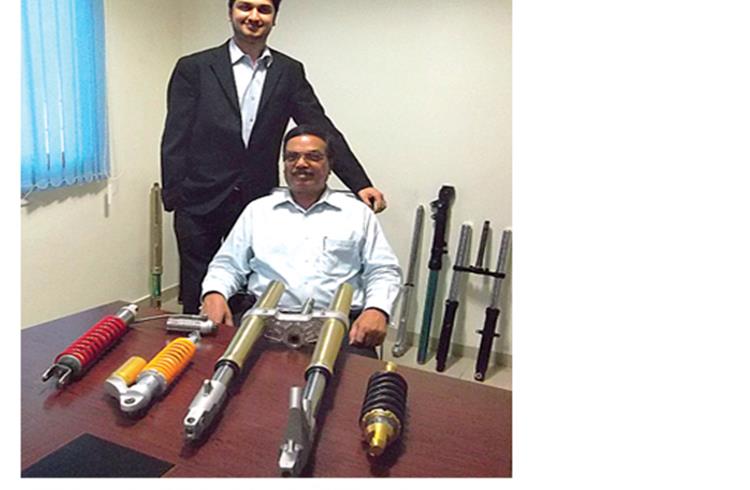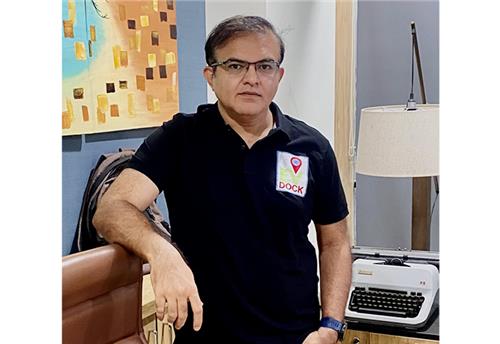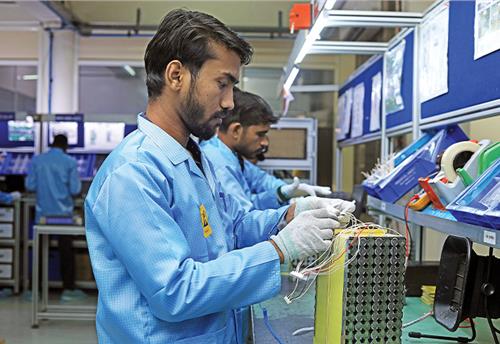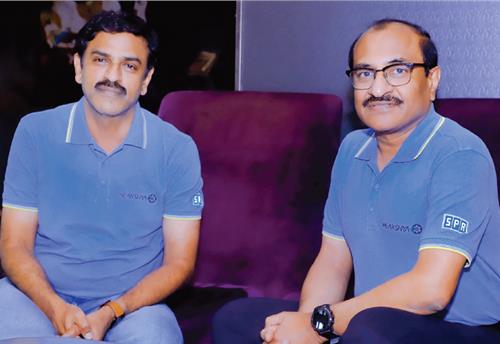Airotek innovates for 2-wheeler suspensions
Airotek Suspension Technologies (ASTPL), a part of the 20-year-old diversified Airotek Group, plans to introduce several innovative and first-time features in two-wheeler suspension systems.
Airotek Suspension Technologies (ASTPL), a part of the 20-year-old diversified Airotek Group, plans to introduce several innovative and first-time features in two-wheeler suspension systems. In order to mark its presence in the auto components space, the Group, which operates in the area of air pollution control equipment, had acquired Emarkons Auto Components in 2008 which supplies suspension parts to companies like Gabriel India, Endurance Group, Tenneco, MagnetiMarelli and others in the capacity of a Tier 2 supplier. However, the company was keen to acquire the status of a Tier 1 auto component supplying entity. It, therefore, entered into a technology sharing agreement in rear suspension systems with Italy’s Paioli Components Srl in 2011, which gave it the opportunity of acquiring assets, technologies and IPRs (intellectual property rights) of Paioli Component’s associate, PaioliMeccanicaSpA.The buyout was executed with an investment of Rs 60 crore, which also included shifting PaioliMeccanica’s entire manufacturing facility from Italy to the Pune plant, which took over a year. That process has now been completed. PaioliMeccanica brings in the high-end front fork suspension technologies along with some big European customers to ASTPL.
 |
Founded in 2010, ASTPL, a family-owned business, is driven by the scions of Group chairman Kiran Kulkarni – Rohan and Nikhil. Joined by industry veteran, SK Baranga, who worked earlier with Mahindra Two-wheelers as the head of R&D until his retirement in 2011, this young company is fast working to gain a foothold in the Indian automotive component market. “Fiscal 2013-14 will be our first year of full-fledged operations with production process beginning in April 2013,” says Baranga, CEO, ASTPL. The company has installed sophisticated machines such as deep hole boring machines for boring operations of aluminium outer tubes, four-stage centre-less grinding line for grinding inner tubes, machining centres axle clamps and brackets, oil filing lines and others equipment brought from Italy. According to Baranga, the facility which is built on a 1.5 acres (using 60 percent for operations and leaving the rest for future expansion) can now produce upto 500,000 units of telescopic front forks (TFFs) and rear shock absorbers (RSAs) per annum. Its sister firm, Emarkons Auto Components, which has a plant in Chakan, Pune will continue supplying parts to its existing clients as well as support the ASTPL facility.
According to Baranga, a conventional two-wheeler TFF and a sophisticated upside-down front fork comprises of 25-30 parts and upto75 parts respectively while a rear shock absorber (gas-charged floating piston type) constitutes nearly 51 parts. Explaining the structure of a basic front fork, Baranga says that “major parts are the limbs (inner and outer), steering shaft, lowering bracket, axle clamps and others. Currently, most of the front forks made in India use steel-based lowering brackets and steering shafts. The use of aluminium (like in KTM Duke bikes) is the new, lightweight technology which is used in making these brackets and steering shafts substantially improving the manoeuvrability of the two-wheeler. In addition, the brackets and steering shafts are welded onto each other. Our design families enable us to do aluminium forging of the two crucial parts. Aluminium forging is, at present, a weak area but given its futuristic importance, we are increasingly focussing on it. Then, we have highly capable equipment for super-finishing of the inner tubes (nickel chromium plating) which enables us to ensure superior finish quality translating into lesser resistance and longer life of forks.”
Green coating
In the area of coating, ASTPL is also focussing on PVD (physical vapour deposition) coating which is usually done on the inner tubes of the front forks used for high-end bikes. While a conventional nickel chromium-coated inner steel tube offers the hardness quotient of 950Hv (unit used for measuring hardness), the PVD-coated tube (with PVD coating done over nickel chrome), the hardness quotient goes up to 3000Hv, lending the same suspension unit with lesser resistance and longer life. Finding economical ways to bring the PVD applications to India, ASTPL is currently talking to a European firm. “PVD coating is the only available solution to reduce dependency on hazardous and highly polluting nickel chromium plating trend,” he explains.
Innovative solutions
ASTPL plans to introduce a bunch of first-time solutions in two-wheeler suspension systems. “We want to lead the competition in supplying upside-down forks to 150cc-180cc bikes and create a win-win situation for the end rider, OEMs and for us. Secondly, we are looking at developing the adjustment systems (offering hard, medium and soft modes for easy reference) for not just the upside-down front forks, but also for the conventional TFFs and RSAs,” says Baranga. The firm is already capable of supplying powder-coated, aluminium die-casted (for conventional TFFs) and extruded aluminium (for USD forks) outer tubes and will be exporting the latter to some European bikemakers. It has also developed extruded aluminium outer tubes along with a local vendor that meets European quality benchmarks. “We have already obtained all necessary approvals under various audits done by European officials,” says Baranga.
The firm is also mulling over developing cost effective TFFs and upside-down forks loaded with gas-charged pistons. The latter are usually used in the suspension systems deployed in high-end bikes.ASTPL has also developed new cost-optimised USD forks for a European luxury bike maker which plans to foray into emerging markets, as a replacement to its existing high-cost suspension systems. “We have already initiated the vendor development (validation and joint empowerment) and indigenisation activities. This means that by the time our assembly lines are working in full-swing, we would have our vendors supplying us with quality parts,” adds Rohan Kulkarni, director, operations and business development, ASTPL. “But convincing vendors to develop high-on-technology products without assuring them large volumes is a challenge,” adds Baranga.
ASTPL has also developed the RSAs with floating canister tank design. “In a first of its kind of application, we have used aluminium forging to attach the floating piston which not only makes it lighter but also looks smarter. This is supplied to Royal Enfield,” says Baranga. The immediate priorities are to implement the top-down strategy of starting with higher-end bikes to leading the innovations into the mass segments, hire around 50 people to set the production moving in speed in the coming six months, and work towards supplying suspension units for upcoming domestic-market bikes by Diwali this year.
RELATED ARTICLES
BRANDED CONTENT: Eliminating the worries of battery charging with smart solutions
The charging infrastructure is the backbone of electric mobility but is also one of the key perceived barriers to EV ado...
The battery-powered disruptor
Greenfuel Energy Solutions is planning to shake up the EV battery market with the launch of a portfolio of specially eng...
SPR Engenious drives diversification at Shriram Pistons & Rings
The engine component maker is now expanding its business with the manufacturing of motors and controllers through its wh...





 By Autocar Pro News Desk
By Autocar Pro News Desk
 04 Jul 2013
04 Jul 2013
 23394 Views
23394 Views









